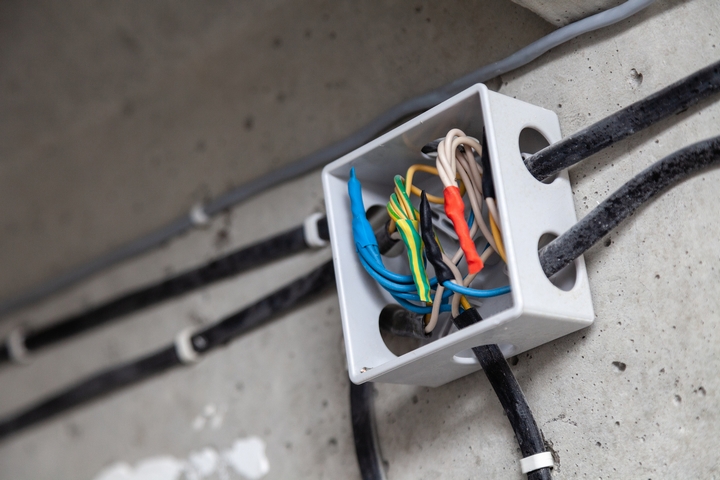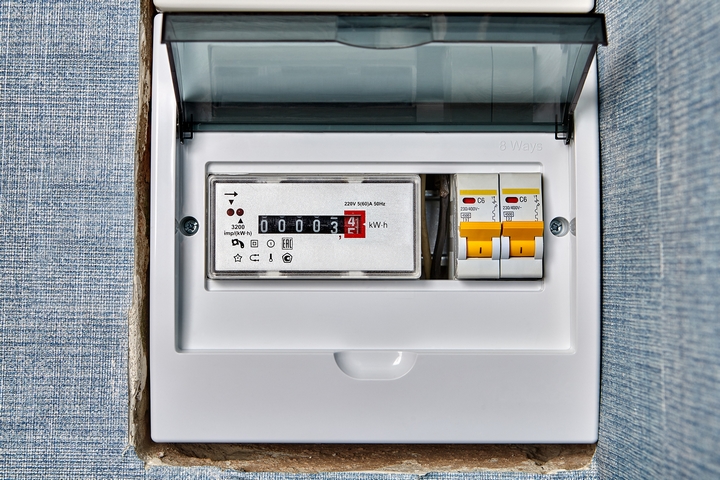Having properly running water in your home is vital to your quality of life. Sometimes, however, you may find yourself in a precarious situation when you discover that it has stalled. Even worse, actual hot water may have even halted completely. You don’t have to panic if this arises. There are usually several reasons as to why that may be the case.
If you are wondering why there may be no running hot water presently in your residence, below are six possible reasons for no hot water at your home:
1. Circuit Breaker Has Been Tripped
 The first and foremost thing you should consider when trying to fix this pressing issue is to check the status of your circuit breaker. Most of the time, hot water that has stopped running is directly related to the breaker connected to your water heater. Like most major appliances, a water heater needs its own unique electrical circuit, leaving it prone to an increased chance of being accidentally tripped.
The first and foremost thing you should consider when trying to fix this pressing issue is to check the status of your circuit breaker. Most of the time, hot water that has stopped running is directly related to the breaker connected to your water heater. Like most major appliances, a water heater needs its own unique electrical circuit, leaving it prone to an increased chance of being accidentally tripped.
Fortunately, a direct inspection of the breaker will usually solve the problem. Check to see if one breaker is out of line with the others. If it is, and to reset it, simply flip it from the “off” position to the “on” one.
2. Wire Shortage
 This is one of the more common reasons for no hot water in your home. There may have been a wire shortage in your circuit breaker that directly or indirectly impacts the flow of properly running hot water. The shortage itself could be the result of a wire being scratched or frayed, both of which can lead to a deficiency in the circuit breaker. If you discover that this is the case, you’ll need to act promptly. Not reporting a wire shortage to a professional electrician leaves the circuit breaker, and your home, more at risk to a potential fire.
This is one of the more common reasons for no hot water in your home. There may have been a wire shortage in your circuit breaker that directly or indirectly impacts the flow of properly running hot water. The shortage itself could be the result of a wire being scratched or frayed, both of which can lead to a deficiency in the circuit breaker. If you discover that this is the case, you’ll need to act promptly. Not reporting a wire shortage to a professional electrician leaves the circuit breaker, and your home, more at risk to a potential fire.
3. Faulty Thermostat
 It may be taken for granted, but you’ll want to actually double check the status of your thermostat as well. For most homes that have electric water heaters, the upper thermostat is in control of both the upper and lower heating elements. The problem? If the lower heating element fails due to whatever reason, but the upper element still works, your home’s water will not get hot enough. This is the main cause of why your water may get lukewarm at most, but not warmed further. If you discover this to be the case, you will need to get the thermostat inspected and possibly replaced.
It may be taken for granted, but you’ll want to actually double check the status of your thermostat as well. For most homes that have electric water heaters, the upper thermostat is in control of both the upper and lower heating elements. The problem? If the lower heating element fails due to whatever reason, but the upper element still works, your home’s water will not get hot enough. This is the main cause of why your water may get lukewarm at most, but not warmed further. If you discover this to be the case, you will need to get the thermostat inspected and possibly replaced.
4. Water Leakage
 Water leakage is one of the most common reasons for no hot water. This requires immediate attention from a plumber, even though it isn’t cause for long-term concern. If hot water has stopped running completely, you’ll have to inspect the tank in your home. Discovering a tank leakage here as it relates to no hot water can necessitate the entire water heater needing replacing.
Water leakage is one of the most common reasons for no hot water. This requires immediate attention from a plumber, even though it isn’t cause for long-term concern. If hot water has stopped running completely, you’ll have to inspect the tank in your home. Discovering a tank leakage here as it relates to no hot water can necessitate the entire water heater needing replacing.
In less extreme circumstances, water leaks generally aren’t a slow, drip-like leak. A connection can easily be tightened up, solving the leakage and get the overall issue of no present hot water resolved. If the issue persists, contact your hydro provider for a more professional troubleshoot.
5. Vulnerable Breaker
 If your home is fairly old, and the main utilities have not yet been adapted to contemporary models, then the culprit of no hot water could be identified. Having the same circuit breaker running overtime can lead to its deterioration. In addition, some breakers may have an undersized fuse or may be undersized in general. You’ll have to replace the breaker in question with one that gives more amperage. Newer models will definitely solve this issue, sustaining this main utility for the long-term.
If your home is fairly old, and the main utilities have not yet been adapted to contemporary models, then the culprit of no hot water could be identified. Having the same circuit breaker running overtime can lead to its deterioration. In addition, some breakers may have an undersized fuse or may be undersized in general. You’ll have to replace the breaker in question with one that gives more amperage. Newer models will definitely solve this issue, sustaining this main utility for the long-term.
6. Pilot Light
 One of the most common issues as it relates to no hot water running within your home. A pilot light is the available flame that ensures your water heater’s burner can be properly activated when hot water is needed. If the pilot light is out, check your manufacturer’s instruction manual to see how it can simply be relit. The problem may be more pressing if your water heater is gas-powered. If that is the case, and hot water fails to run in your home, the issue will usually reside through a leak in the gas line. This usually triggers a foul smell of rotten eggs surrounding the water heater. You’ll want to act immediately in this scenario; call your hydro provider or plumber to fix the potential gas leak from growing into something much more dangerous.
One of the most common issues as it relates to no hot water running within your home. A pilot light is the available flame that ensures your water heater’s burner can be properly activated when hot water is needed. If the pilot light is out, check your manufacturer’s instruction manual to see how it can simply be relit. The problem may be more pressing if your water heater is gas-powered. If that is the case, and hot water fails to run in your home, the issue will usually reside through a leak in the gas line. This usually triggers a foul smell of rotten eggs surrounding the water heater. You’ll want to act immediately in this scenario; call your hydro provider or plumber to fix the potential gas leak from growing into something much more dangerous.
We regularly take things like the roof over our heads or running hot water for granted. It’s only until they are thrown into disarray do we notice how pressing of an issue it can present. As it relates to hot water, there exists multiple reasons as to why it isn’t running as properly as it should within your home. Some solutions are easy while some are more intricate. In any event, you’ll want to consider these factors first and call your hydro provider, electrician, or plumber if the resolution is out of what you can fix yourself.




